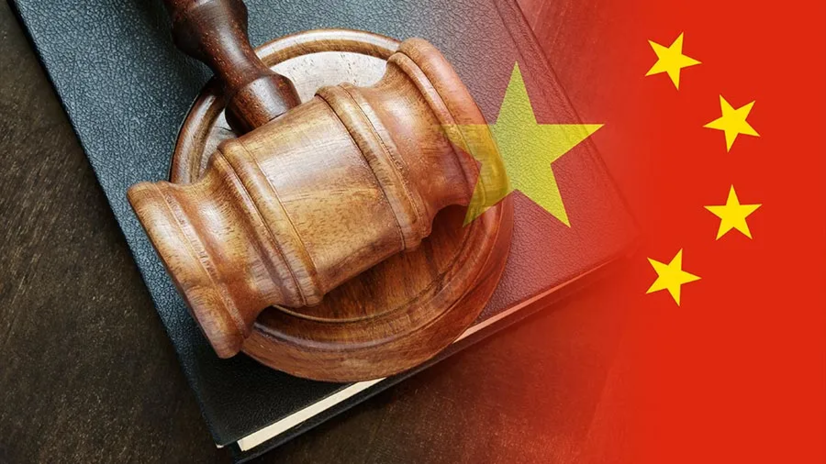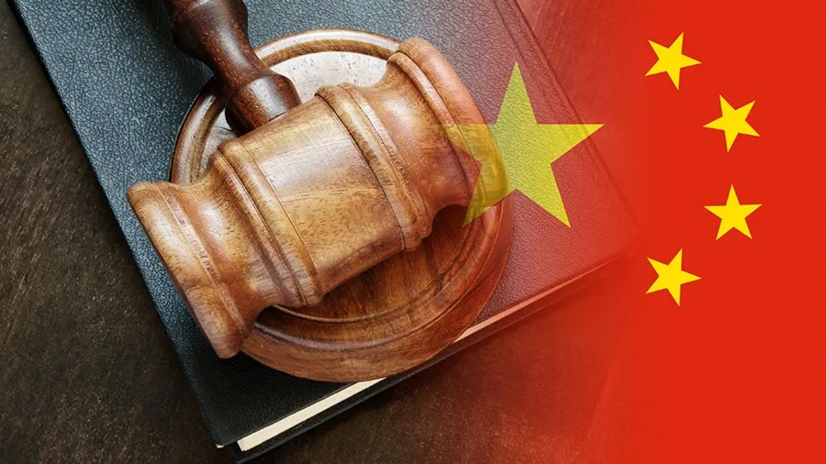Cross-Border IP Disputes in China: What Foreign Businesses Need to Know Under the New Regulations
As China continues to refine its legal framework, intellectual property (IP) has taken center stage, particularly in disputes involving foreign parties. In recent years, a surge in IP-related conflicts has made it increasingly difficult for foreign enterprises to continue manufacturing in China. Issues such as trademark infringement, design copying, and lack of swift legal recourse have led some foreign enterprises to reassess their sourcing and production strategies.

In response to these growing concerns, the State Council introduced a set of measures titled the Provisions on the Handling of Foreign-Related Intellectual Property Disputes (hereinafter referred to as “The New IP Regulations”), which came into effect on May 1, 2025. These reforms are designed to enhance judicial protections, streamline dispute resolution procedures, and bring China’s IP enforcement mechanisms more in line with international standards, ultimately offering greater clarity and legal security for foreign enterprises operating across borders.
It is important to note that the New IP Regulations are not solely designed to protect foreign enterprises operating in China; they also aim to safeguard the interests of Chinese businesses facing unfair treatment in foreign jurisdictions. The government has outlined specific countermeasures that may be taken in response to instances where Chinese companies experience discrimination in the enforcement of their intellectual property rights abroad.

Key features of the new regulations
The New IP Regulations, comprising 18 articles, require relevant government departments to strengthen overseas IP information inquiry and early warning services, provide guidance and rights protection assistance to individuals and organizations involved in key foreign-related IP disputes, and promote experience-sharing through typical case studies. Some of the key features include:
●Encouragement of alternative dispute resolution mechanisms:
The New IP Regulations under Article 7 Stipulates that “The intellectual property management department shall:
Support commercial mediation organizations and arbitration institutions to participate in the resolution of foreign-related intellectual property disputes, provides citizens and organizations with efficient and convenient channels for resolving foreign-related intellectual property disputes, and encourages and guides citizens and organizations to quickly resolve foreign-related intellectual property disputes through reconciliation, mediation, arbitration, etc.
This exemplifies the use of non-judicial means of dispute resolution, such as arbitration, mediation, and administrative adjudication in foreign related matters. This policy shift aligns with China’s broader objective to reduce litigation congestion and promote more expedient and cost-efficient resolution of IP disputes.
●Several government bodies join forces to assist enterprises in managing foreign- related IP Disputes:
The New IP Regulations specify that the intellectual property management departments and the Ministry of Commerce will serve as the primary coordinating bodies, working alongside judicial authorities and other relevant agencies to support enterprises in managing foreign- related intellectual property disputes. Their responsibilities include providing operational guidance on foreign IP matters, monitoring legal developments in overseas IP systems, offering targeted training on key dispute issues, and assisting businesses in responding to disputes issues, and assisting businesses in responding to disputes and safeguarding their rights. These efforts aim to help enterprises proactively mitigate risks and effectively resolve cross-border IP Conflicts.
●Expansion of access to ancillary legal support:
Article 9 of The New IP Regulations stipulates that:
“The judicial administrative department will Support enterprises in establishing mutual assistance funds for the protection and maintenance of foreign-related intellectual property rights, encourages insurance institutions to conduct foreign-related intellectual property rights-related insurance business in accordance with market principles, and reduces the costs of rights protection for enterprises.”
This ensures increased institutional support for small and medium-sized market participants, including access to IP legal aid, subsidized legal representation, and insurance mechanisms intended to offset the financial risks associated with rights enforcement.
●Stricter adherence to the law with regard to evidence collection.
Under the New IP Regulations, the service of legal documents and the collection of evidence within China must strictly follow established legal procedures. These actions must comply with international treaties that China has signed or acceded to, along with domestic laws such as the Civil Procedure Law and the Law on International Criminal Judicial Assistance. Unilateral service or evidence collection by foreign entities or individuals is prohibited, and any such activity must go through official channels.
Additionally, the new regulations clarify that organizations or individuals in China involved in overseas intellectual property litigation, or subject to foreign legal or enforcement investigations, must adhere to laws concerning state secrets, data security, personal information protection, and export controls. Where applicable, they must obtain approval from competent authorities before providing any evidence or materials to foreign parties.

Conclusion:
The New IP Regulations on the Handling of Foreign-Related Intellectual Property reflect China’s growing commitment to refining its IP enforcement framework in line with the realities of cross-border commerce. By advancing the use of alternative dispute resolution mechanisms, strict requirements for evidence collection, and enhancing institutional support, the revised regulations aim to foster a functional system for resolving foreign related IP disputes.
For foreign enterprises, the new regulations present an opportunity to utilize more accessible legal channels within China, and an imperative to reassess current IP policies to ensure they align with the evolving regulatory environment.
While the ultimate impact will depend on judicial practice and administrative implementation, the direction of reform is distinctive, toward greater transparency, procedural fairness, and international alignment. Stakeholders would be well advised to monitor the application of these revised provisions and adapt their enforcement strategies accordingly.
Now is the time for foreign enterprises operating in China or entering the market to audit their IP portfolios, review dispute resolution clauses in existing contracts, and consult with counsel on how to best leverage the revised regulatory environment. Proactive alignment today can mitigate risks and strengthen legal positioning tomorrow.
中国的跨境知识产权纠纷: 外资企业在新法规下需要了解什么?
随着中国法律框架的不断完善,知识产权 (IP) 已成为中心议题,尤其是在涉及外国当事人的纠纷中。近年来,与知识产权相关的冲突激增,使外国企业在中国继续经营变得越来越困难。商标侵权、外观设计抄袭以及缺乏迅速的法律追索权等问题导致一些外国企业重新评估其采购和生产战略。

为了回应这些日益增长的关切,国务院出台了一套名为《关于涉外知识产权纠纷处理的规定》(以下简称 《知识产权条例》)的措施,并于 2025 年 5 月 1 日生效。这些改革旨在加强司法保护,简化争议解决程序,使中国的知识产权执法机制更加符合国际标准,最终为跨国经营的外国企业提供更清晰的法律保障。
值得注意的是,新《知识产权条例》并不只是为了保护在华经营的外国企业,其目的也是为了维护面临知识产权问题的中国企业的利益。
在外国司法管辖区受到不公平待遇。针对中国企业在国外知识产权执法过程中遭遇歧视的情况,中国政府提出了具体的应对措施。

新条例的主要特点
新《知识产权条例》共 18 条,要求政府有关部门加强海外知识产权信息查询和预警服务,为重点涉外知识产权纠纷中的个人和组织提供指导和维权帮助,并通过典型案例研究促进经验交流。主要内容包括:
●鼓励非诉讼纠纷解决机制:
新《知识产权条例》第 7 条规定:"知识产权管理部门应当支持商事调解组织和仲裁机构参与涉外知识产权纠纷的解决,为公民和组织提供高效便捷的涉外知识产权纠纷解决渠道,鼓励和引导公民和组织通过和解、调解、仲裁等方式快速解决涉外知识产权纠纷。
这体现了在涉外事务中使用非司法手段解决争议,如仲裁、调解和行政裁决。这一政策转变符合中国的大目标,即减少诉讼拥堵,促进以更快捷、更具成本效益的方式解决知识产权纠纷。
●多个政府机构联手协助企业管理涉外知识产权纠纷:
新《知识产权条例》规定,知识产权管理部门和商务部将作为主要协调机构,与司法机关和其他相关机构一道,支持企业处理涉外知识产权纠纷。其职责包括提供涉外知识产权事务的业务指导,监测海外知识产权制度的法律发展,就关键争议问题提供有针对性的培训,以及协助企业应对争议问题,并协助企业应对争议和维护自身权利。这些工作旨在帮助企业主动降低风险,有效解决跨境知识产权冲突。
●扩大获得辅助法律支持的机会:
新《知识产权条例》第 9 条规定“司法行政部门支持企业建立涉外知识产权保护与维权互助基金,鼓励保险机构按照市场原则开展涉外知识产权保险业务,降低企业维权成本”。
这确保了为中小型市场参与者提供更多的制度支持,包括获得知识产权法律援助、法律代理补贴,以及旨在抵消维权相关财务风险的保险机制。
●在证据收集方面更加严格遵守法律。
根据新的《知识产权条例》,在中国境内送达法律文件和收集证据必须严格遵守既定的法律程序。这些行为必须符合中国已签署或加入的国际条约,以及《民事诉讼法》和《国际刑事司法协助法》等国内法律。禁止外国实体或个人单方面提供服务或收集证据,任何此类活动都必须通过官方渠道进行。
此外,新规定还明确,中国境内的组织或个人参与海外知识产权诉讼,或受到外国法律或执法调查,必须遵守有关国家机密、数据安全、个人信息保护和出口管制的法律。在适用的情况下,在向外国当事人提供任何证据或材料之前,必须获得主管部门的批准。

结论
新的《关于涉外知识产权纠纷处理的规定》反映了中国日益致力于完善其知识产权执法框架,以适应跨境贸易的现实需要。通过推进替代性争议解决机制的使用、对证据收集的严格要求以及加强制度支持,修订后的条例旨在建立一个解决涉外知识产权争议的功能性体系。
对于外国企业来说,新条例提供了一个在中国境内利用更便捷法律渠道的机会,也是重新评估现行知识产权政策以确保其符合不断变化的监管环境的当务之急。
虽然最终的影响将取决于司法实践和行政执行,但改革的方向是明确的,即提高透明度、程序公正性和与国际接轨。利益相关者最好对这些修订条款的适用情况进行监督,并相应调整其执法策略。
对于在中国经营或进入中国市场的外国企业来说,现在正是审核其知识产权组合、审查现有合同中的争议解决条款并就如何更好地利用修订后的监管环境咨询律师的时候。今天的积极调整可以降低风险,并加强明天的法律定位。
声明
本文仅为交流探讨之目的,不代表广悅律师事务所或其律师出具的任何形式之法律意见或建议。如需转载或引用本文的任何內容,请与本所沟通授权事宜,并于转载或引用时注明出处。如您有意就相关议题进一步交流或探讨,欢迎与本所联系。
本期作者


涉外法律服务领域介绍
涉外法律服务领域是由高级合伙人王敬律师及其他合伙人组建成立并领导的。该领域汇聚了中国、中国香港、中国澳门、美国、英国、德国、BVI等国家与地区的执业律师、高级顾问、项目经理等经验丰富的法律服务人员,擅长处理跨境交易及争议解决等复杂法律事项,在金融及投资并购、国际贸易及信用证、跨境投资、海事海商、保险、公司法律服务、外商直接投资、知识产权、商标服务、劳动争议以及其他一般商业纠纷案件(诉讼及仲裁)等方面具有丰富的办案经验和卓越的成就,团队客户主要包括大型国企、外国企业、船东互保协会、保险公司、航运公司、国际银行及金融机构等。
作者丨Franco Fornari、Karen Chipita
编辑丨苏韵
审核丨黄晓俊
审定丨品牌宣传与市场拓展委




